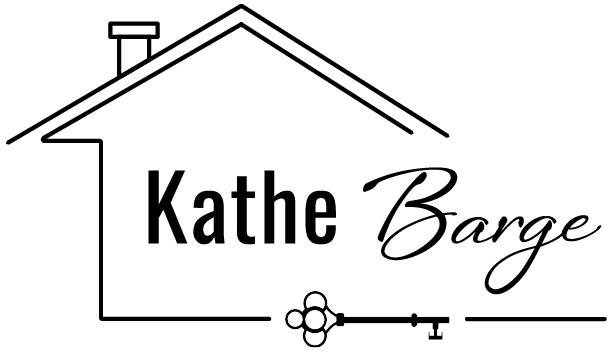by Kathe Barge | Jun 1, 2017 | Blog, Buyers, Contracts, Listings, Market Trends, Mortgage, Real Estate
It’s true! Bidding wars are back in some neighborhoods! The extremely tight inventory, coupled with the influx of spring buyers has made the competition sometimes fierce for well-conditioned homes in great neighborhoods. The first thing you should do to set yourself up for success in a hot market is to get a pre-approval from a reputable local lender.
The pre-approval process is more than a pre-qualification. It involves submitting all documentation to your lender long before you actually make an offer. This includes tax returns, bank statements… The lender will underwrite your loan subject only to the appraisal of your new home once you find it. This makes you an incredibly strong buyer – you could choose to remove the mortgage contingency altogether and insert only an appraisal contingency, but even short of that, knowing that you have taken the time to get fully approved will impress the seller and give you some advantage over other buyers.
Pre-approval (as opposed to pre-qualification) is also important so that you don’t find out 75% of the way through the home buying process that you cant afford the home. Sometimes lenders miss some of the critical pieces of your puzzle during the pre-qualification process that an underwriter will pick up. For example, it is possible that your gross income is high, and that you reported that figure to the lender, but when the underwriter reviews your tax return they see that your AGI (adjusted gross income) is lower due to alimony. Child support payments will also lower the amount of the loan you can qualify for. You may have co-signed student loans or car loans for a child, or a mortgage for a family member. Any debt you have co-signed for, whether it is an asset you use personally or not, will lower the loan size you can qualify for. And of course, pending actions for divorce, as well as dings on your credit you were unaware of (such as doctors bills you forgot to pay) will affect your ability to borrow. Better to take the time to figure this out up front and target homes you know you can afford, rather than being tempted by those out of your price range!
[contact-form-7 id="115311" title="Get More Information Form"]
by Kathe Barge | Sep 15, 2016 | Blog, Buyers, Mortgage, Real Estate, Sewickley Herald
Dear Kathe,
How important is your credit score – what should I know about it?
Your credit score is more important than you might think! Many people never consider is how much their “not so great” credit is costing them. Just a 100 point differential in a credit score, from a 720 to a 620 for example, could cost you in excess of $91,000 in additional interest fees paid on a $300,000 loan over the life of that loan! That’s a lot of money to forego because of credit issues.
It is therefore well worth your time to understand what goes into credit, what makes your score go up or down, and how to positively influence your credit score. Your payment history forms the largest part of the score. Just one 30-day late payment can reduce your score a full 50 points! Ouch! Put your bills on auto-pay whenever possible and you will be making great progress toward avoiding this costly mistake! If you miss one payment once, take the time to call the credit card company and beg them not to report it – most will forgive one late pay each year.
How much you currently owe on your credit cards is the second largest piece of the equation. Ideally, you do not use more than 15% of your outstanding credit line, but in no event should you exceed 30%. So, for example, if you have $10,000 in credit available to use, you should not be using more than $1500 – $3000 of that credit. This number is easy enough to manipulate when you are planning on buying a home or refinancing – just refrain from charging in excess of 15% – 30% of the available credit line in the 6 – 12 months immediately preceding your mortgage application and you can positively impact your score.
Credit inquiries can also reduce your score – avoid applying for new credit cards or other loans during the months prior to your planned application. Also avoid closing old lines of credit – having open but unused lines of credit will positively impact your credit utilization percentage. When a credit card company chooses to increase your line of credit that also increases your score, but beware – if they decrease your line due to overuse or late payments, this can reduce your score as much as 100 points.
Lenders generally require scores to exceed 650 in order to obtain a loan at all, and the best rates go to borrowers with scores exceeding 760. Even insurance companies look at credit scores these days and give the best rates to customers with the best credit. There is simply no getting away from the impact your credit can have on your budget. So do yourself a favor and take the time to monitor your own credit and understand how your choices impact your scores – you’ll thank yourself in the long run when you have more money left over to spend on the things you love!
by Kathe Barge | Aug 25, 2016 | Blog, Buyers, Mortgage, Pittsburgh, Real Estate
Dear Kathe,
We are planning on buying a new home in the coming months? Should we get prequalified or preapproved for a loan? What is the difference?
Its always important to make one of your first steps in buying a home a conversation with a lender. Pre-qualifications are easy – you just pick up the phone and tell the lender your income and amount you have available to put down towards the purchase, they check your credit and issue a preapproval letter. However, this does not hold much clout with the seller.
A preapproval is a much more rigorous process. Basically, you apply for the loan without having found a house. You give the lender all of the documentation they think they need and they out it through the loan underwriters. This is much more time consuming – these days lenders require quite a long list of documentation and explanation to approve a loan. However, this is something you will have to go through anyhow when you are ready to buy, so its not a bad idea to get it done upfront.
The preapproval process will also save you potential heartache later. Sometimes buyers are surprised at what gets in the way of a loan, You may have child support or student loan debt, for example, that you don’t think to mention in the very simple prequalification process that lowers what you can afford on a monthly basis. It would be unfortunate to find your dream home only to go through the loan approval process and find out that you don’t qualify to buy it. Additionally, sellers strongly prefer preapproval letters from buyers because they know lenders have taken a thorough look. A preapproval letter will make your offer much stronger, which could be important if more than one offer is received.
Keep in mind that whether you go through the prequalification or the preapproval process, this does not bind you to a specific lender. Once you have a home under agreement, you are free to shop rates and costs to choose the best lender for you.
by Kathe Barge | Sep 3, 2015 | Blog, Buyers, Contracts, Inspections, Mortgage, Pittsburgh, Real Estate, Sewickley, Sewickley Herald
Dear Kathe,
What impact will the new lending laws have on us as future home buyers?
This is a huge topic that I have attended day long seminars on! On October 1st, new laws will take effect that will impact the way that we all buy and sell homes. Its complex and will take some getting used to, but its important to keep in mind that all buyers and sellers should plan to close their transactions in no less than 60 days, unless the buyer is a cash buyer. Stacked closings, where the sellers close on their home and immediately close on their new home, will, at least until we adjust to the new rules, become much trickier.
To start, much of the terminology has changed. Lenders are now called Creditors. Borrowers are called Consumers. The Good Faith Estimate is no more – it has been replaced by the Loan Estimate – this is what your Creditor gives you to set forth the loan terms. The HUD-1 is also gone. It has been replaced by the Closing Disclosure. And the closing/settlement is now called the Consummation!
The most cumbersome change is that the Consumer must receive their Closing Disclosure 3 days prior to closing. It is generally considered that this requires sending the Closing Disclosure 7 days in advance of closing. To meet these deadlines, Consumers will need to be very prompt in making their loan application and all of getting their documents to the Creditor. If documents are delayed, underwriting will be delayed and the above notice requirements may not be met. If these requirements are not met, your closing will be delayed.
It is recommended that walk-throughs go to a two-step process. A preliminary walk through is recommended 7 days in advance of closing to make sure the seller has complied with all terms of the Agreement of Sale. Sellers – this means that you will need to make your inspection repairs well in advance of closing. Buyers, your agents will need to remind Sellers through their agents to be sure they leave all appliances, clear all personal effects and debris from the home… A second walkthrough is recommended for immediately before closing, but if there are any issues that affect value (such as an appliance that was removed from the home), this will cause a lengthy delay in the closing. Therefore it is critical that all parties know and understand their obligations under the contract.
The new laws are complex – be sure to choose a real estate professional who is well educated on these changes to make your real estate transaction is as smooth as possible. Check back next week for more information on how these new laws are affecting all of us.
by Kathe Barge | Aug 20, 2015 | Blog, Buyers, Mortgage, Pittsburgh, Real Estate, Sewickley, Sewickley Herald
Dear Kathe,
My friend’s closing on her existing home was delayed and she ended up having to delay her closing on her new home, and was stuck with all of her stuff on a moving van and unable to move in to her new home. How can these major inconveniences be avoided?
Back-to-back closings do raise the possibility of delayed closings and moving vans sitting curbside waiting to unload. When there are multiple transactions lined up on top of each other, if one in the line-up fails to close on time, it will affect everything in line behind it. Ideally, transactions would not be back-to-back, but this only works if buyers are paying cash out of existing accounts or have sufficient resources to carry two homes, so that the new home can be closed independently of the closing on the old home. But even if transactions are not stacked, closing delays can still occur, causing unhappy buyers and sellers, because lenders aren’t ready.
So how can these inconveniences be avoided? Selection of your lender and closing agent are absolutely critical. There are a lot of people out there who would like your mortgage and closing business. Many may even be your friends, neighbors or family members. But the relevant question, in addition to rates and fees, is whether they close on time every time. This is where you really need to rely on your agent’s expertise. Even consumers who move frequently only engage in the mortgage process once every few years. A busy agent is dealing with lenders daily. We know who stands behind their word and will not let you down, and who will not. A well-intentioned but poor performing lender can cost you significant unhappy delays – make a careful choice up front.
It is also crucial that you get your lender all of the documentation that he needs immediately at the time of mortgage application. You don’t want to be part of any delay. Finally, even once you have turned in all of your paperwork, its important to check in with your lender weekly, daily the week before closing, until they tell you that they have the “clear to close.” The old saying “the squeaky wheel gets the grease” is never truer than when it comes to closing your mortgage loan – stay in close touch with your lender!
The rules surrounding lending and closing mortgages is about to change again, in October. In an effort to protect consumers, the process will be getting even more cumbersome and delays should be anticipated. Your careful choice of your service providers will become even more critical!
by Kathe Barge | Dec 12, 2013 | Blog, Buyers, Contracts, Mortgage, Real Estate, Sewickley Herald
In last week’s article I discussed several of the pitfalls that Buyers encounter through the mortgage application process. Keeping your bank statements “boring” is key – avoid undocumented deposits, NSF charges and moving large sums of money around. Also avoid having your credit “pulled” – don’t take advantage of new credit card offers just to save an extra 10%. That’s the start to s smooth application process… but there’s more.
Don’t change jobs, and obviously, don’t quit your current job without inquiring about the impact this change could have on your approval/approvability of your mortgage loan. Employment stability is a big factor in the underwriting loan process. Quitting or changing jobs or even positions within the same company can potentially endanger your entire loan approval. Switching from a salaried position to a commission-based position can pose a problem with your financing. Changing from a W-2 employee to a new job where you are paid as a “1099” independent contractor will also pose a problem. There may be long waiting periods if your employment status moves from that of employee to being an independent contractor. Often lenders will want to see 1-2 years of income tax statements as an independent contractor before they will agree to provide financing.
Don’t file disputes on your credit card accounts if you anticipate applying for a mortgage in the short term. You may have a valid reason for disputing an account with a credit card company, but you should avoid filing a dispute unless you are certain that you are not planning on applying for a mortgage in the near future. Lenders will often reject financing if a borrower has a disputed account on their credit report.
Don’t forget to pay your bills on time (all bills, including the doctor and the dentist) Late payments could cause your account to be sent to collections which could take you months to reverse.
Finally, don’t pack away your financial documents. We know that you are moving and that getting a head start on packing is a must. Please don’t pack away your financial documents as your lender may need them for the processing of your mortgage loan. Please keep all financial records handy including tax returns, W-2’s, paystubs, bank statements, divorce agreements, etc….
If you’ll follow these simple steps, getting a mortgage should be easy and straightforward!
by Kathe Barge | Dec 5, 2013 | Blog, Buyers, Mortgage, Real Estate, Sewickley Herald
Mortgage rates remain low, but the process of obtaining a mortgage is more complex than most buyers appreciate. Underwriters are extremely detailed in their review of mortgage applications – one small “mistake” could derail your entire application. Take the time before you buy to understand the possible pitfalls, and then steer clear for a smooth mortgage process.
First, don’t make large undocumented deposits into your bank accounts. Mortgage guidelines require that underwriters review all deposits reflected on bank account statements. If there are deposits present on a bank statement and the underwriter cannot tell where the funds came from, then the underwriter may ask for you to provide a “paper trail” to document the source of the funds used for the deposit. When making a deposit, keep the associated paperwork (i.e. the “paper trail”) you may have received that would show where the funds came from for the deposit (i.e. check stub, copy of check, receipt for liquidation of another account, etc…). Try not to make cash deposits if at all possible as it is difficult to show where “cash” came from. Try not to move your money around between accounts. There will be plenty of time to consolidate funds if you desire after you’ve applied for your mortgage loan and before the closing date on a home you purchases. Be sure to save ALL pages of your bank statements. Do not throw them away or shred them.
Second, strive to have ‘boring’ bank statements – no NSF charges, no unusual deposits, not a lot of moving around of money between accounts. Achieving this will definitely make your mortgage process go smoother.
Finally, don’t open new credit and don’t take on new debts. Unless advised to do so by your mortgage professional, you should try to avoid having your credit checked by anyone or taking on any new debt (i.e. credit cards, loans, lines of credit, etc…). Numerous credit inquiries may impact your credit score which in turn could affect your mortgage loan and interest rate quote. In addition, underwriters may require that you write a letter explaining the inquiries on your credit report stating if you did or did not acquire any new debts as a result of the inquiry. While it’s tempting to take advantage of an extra 10% off at a department store if you open a new credit card with them, it may be best in the long run to pass on those offers and use one of your existing credit cards.
Check back next week for more tips on making your mortgage application process a smooth one!
by Kathe Barge | Mar 15, 2012 | Blog, Buyers, Mortgage, Real Estate, Sewickley Herald
Obtaining financing to purchase a home seems to get more and more complex as the years pass by. Many of my readers are likely long term homeowners who pay their bills on time and are not concerned about getting their next loan, whether its time to move up, down or just across town. But what about the next generation of home buyers? The next generation of home buyers may very well be your kids or grandkids. Our housing market starts at the bottom and builds from there. People buy their first home, which allows someone else to make a move, and eventually all of these moves will affect you and your property value. So equipping the next round of first time home buyers with the tools it takes to actually buy a home benefits us all.
When I was a kid I overheard my parents talking about saving the 20% down and being sure to pay all the bills on time. But we recently moved through a period in our nation’s lending history when money was free flowing and loans could be had with a wink and a handshake. But those days are gone, likely forever.
After many “easy money” years, our newest group of home buyers may not have been educated with the old mantras – save – pay on time – and they may shocked to find out that they don’t have what it takes to get a loan. So what does it take? A loan applicant must have credit in their name (and not a card they are authorized to use that belongs to mom or dad) on three separate lines (cards, car loans) and they must NEVER have made a late payment. The cards DO NOT have to be actually used to establish a credit history – the potential homebuyer just has to have been granted the cards. If they do use the cards, then as a general rule, it is not a good idea to charge more than 50% of the credit granted in any given payment cycle, at least if they are nearing a time when a loan application is planned. If they miss a payment, that line of credit is disqualified and they will need to show the existence of 3 lines of credit that have never had a miss. If they don’t have three lines of credit showing on their credit report, they will only be eligible for an FHA loan, and must be able to show 12 months of payment history on other things such as a cell phone bill or utility bill in their own name (note: utilities paid on a budget plan do not satisfy this requirement).
So what should you be doing to help the next generation of home buyers? Educate your kids & grandkids about how they will have to learn to use credit cards responsibly and how they will always have to pay their bills on time. When you feel they can handle a credit card (or 3), help them choose appropriate no fee cards. Consider checking in with them each month at first to make sure that they are remembering to pay the bills (preferably in full) by the deadline each month. With a little coaching, we can all help the next generation of homebuyers to be ready to successfully purchase their new home.





